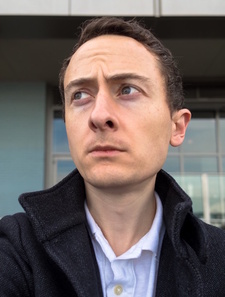Systems Lunch

Title: Organizing Computation for High-Performance Graphics and Visual Computing
Abstract: In the face of declining returns to Moore's law, future visual computing applications--from photorealistic real-time rendering, to 4D light field cameras, to pervasive sensing with deep learning--still demand orders of magnitude more computation than we currently have. From data centers to mobile devices, performance and energy scaling is limited by locality (the distance over which data has to move, e.g., from nearby caches, far away main memory, or across networks) and parallelism. Because of this, I argue that we should think of the performance and efficiency of an application as determined not just by the algorithm and the hardware on which it runs, but critically also by the organization of its computations and data. For algorithms with the same complexity--even the exact same set of arithmetic operations--the order and granularity of execution and placement of data can easily change performance by an order of magnitude because of locality and parallelism. To extract the full potential of our machines, we must treat the organization of computation as a first-class concern, while working across all levels, from algorithms and data structures, to programming languages, to hardware.
This talk will present facets of this philosophy in systems I have built for image processing, 3D graphics, and machine learning. I will show that, for the data-parallel pipelines common in these data-intensive applications, the possible organizations of computations and data, and the effect they have on performance, are driven by the fundamental dependencies in a given problem. Then I will show how, by exploiting domain knowledge to define structured spaces of possible organizations and dependencies, we can enable radically simpler high-performance programs, smarter compilers, and more efficient hardware. Finally, I will show how we use these structured spaces to unlock the power of machine learning for optimizing systems.
Bio: Jonathan Ragan-Kelley is Esther and Harold E. Edgerton Assistant Professor of Electrical Engineering & Computer Science at MIT, and Assistant Professor of Electrical Engineering & Computer Science at UC Berkeley. He was previously a postdoc in computer science at Stanford, where he worked with Pat Hanrahan, and spent a year as a visiting researcher at Google. His work focuses on high-efficiency computer graphics, at the intersection of graphics with systems, architecture, and compilers. He did his PhD with Fredo Durand and Saman Amarasinghe at MIT CSAIL, developing the Halide language together with Andrew Adams, has worked at three major GPU vendors in architecture, compilers, and research, and built a real-time preview system for the special effects industry in collaboration with Industrial Light & Magic.
Registration and a passcode are required for this event. If you would like to attend this talk and need the Zoom information, please register here to receive Zoom links and passcodes for the Systems Lunch events from Emery Berger.